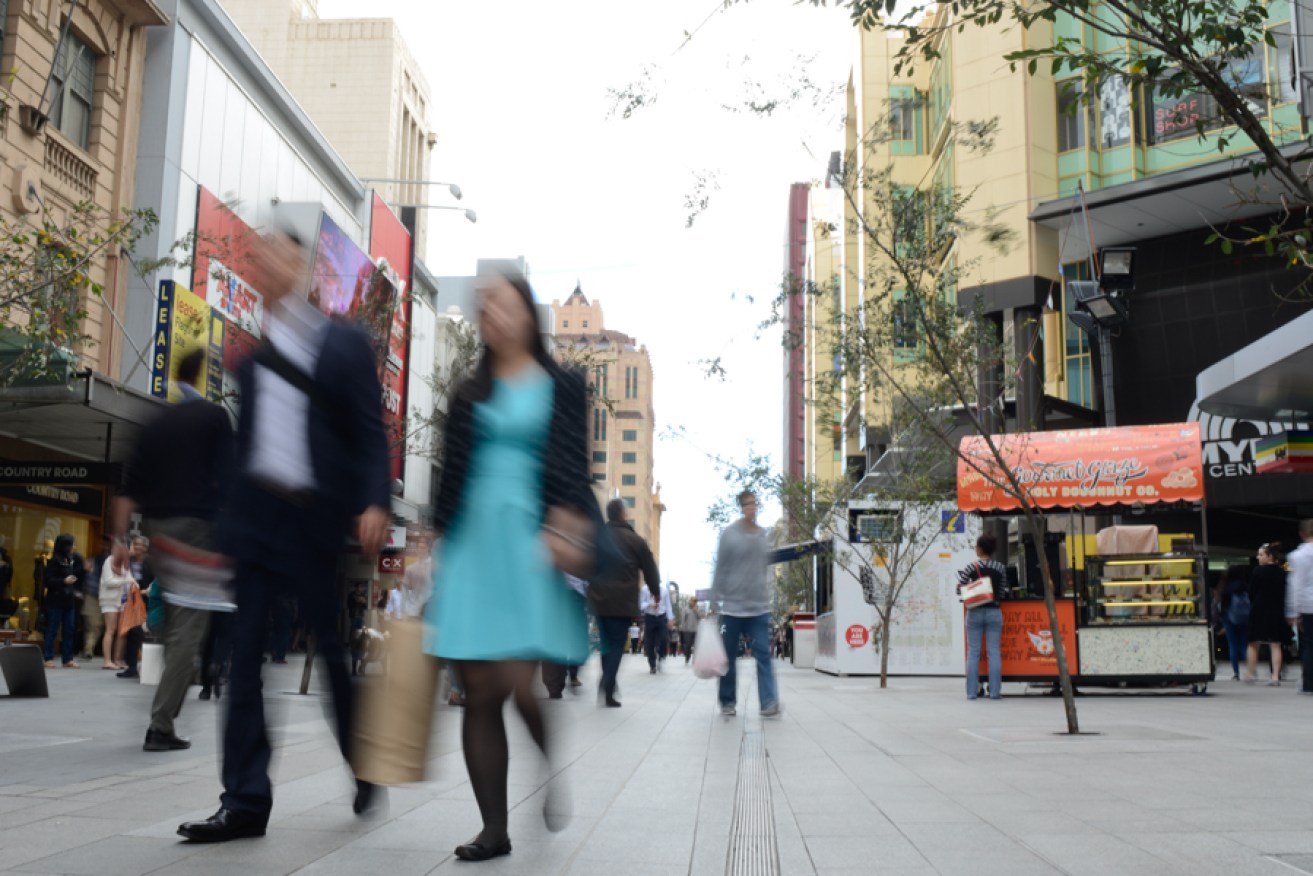Blandy: South Australians must take back the economy


"The Government is not us. We are us – in all our splendid variety of ideas and possibilities, failures and successes."
South Australia’s economic prosperity depends on local individuals and businesses, not the government, argues Richard Blandy.
Since 2001/02, the final year of the last Liberal Government, South Australia’s economy (Gross State Product) has shrunk as a share of the Australian economy (Gross Domestic Product) from 7 per cent to 6.1 per cent.*
South Australia’s share of the national economy is shrinking by about 0.075 per cent per annum. In 15 years’ time, unless South Australia’s economic strategy changes dramatically, our economy will be less than 5 per cent of the national economy.
What this means is that people trying to find work in South Australia are always going to struggle compared with people generally in Australia. Many of us will have to move interstate to find jobs. South Australian voters should not accept this state of affairs any more.
Since 2001/02, the last year of the last Liberal Government, every South Australian industry has shrunk as a share of the corresponding Australian industry, with the notable exceptions of electricity, gas, water and waste services (risen to 8.4 per cent of the Australian industry from 7.7 per cent); administrative and support services (risen to 6.1 per cent of the Australian industry from 5.9 per cent); public administration and safety (risen to 7.0 per cent of the Australian industry from 6.6 per cent); and health care and social assistance (risen to 8.3 per cent of the Australian industry from 7.7 per cent).
In other words, it is essentially public utilities, the state bureaucracy, and the state’s health and welfare system that have increased in size compared with their counterparts in the rest of Australia.
By contrast, a broad range of private sector businesses have struggled compared with their interstate counterparts.
We have lots of good businesses and lots of people with innovative ideas here already. They need to be allowed to make more money. Our own people will get us out of our economic hole if their businesses are allowed to be more profitable.
Since the last Liberal Government, South Australia’s agriculture, forestry and fishing sector has shrunk from 15.3 per cent of the Australian industry to 13.5 per cent; SA’s mining sector from 2.9 per cent of the Australian mining sector to 2.6 per cent; SA’s manufacturing sector from 8.4 per cent of Australia’s manufacturing to 7.4 per cent (and we pride ourselves on our manufacturing capability); SA’s accommodation and food services have fallen from 7.1 per cent of the Australian accommodation and food services sector to 5.7 per cent; and SA’s information media and telecommunications sector from 6.2 per cent of the Australian sector to 4.9 per cent. And so it goes.
If this private sector decline is to be turned around, there must be a large, credible, long-term increase in private sector profitability to drive investment by our businesses. This requires a reduction in government spending so that taxes can be reduced. A good place to start cutting would be in programs that are supposed to induce businesses to come to South Australia. This is a waste of money and effort and is only done for political effect, to fool the voters into believing that the South Australian Government is delivering economic growth.
We have lots of good businesses and lots of people with innovative ideas here already. They need to be allowed to make more money. Our own people will get us out of our economic hole if their businesses are allowed to be more profitable.
There is no shortage of ideas about what we could be good at. For example, on 19 July, the Sunday Mail ran a front page story (“Yes we can”), followed up by stories on pages 6 and 7, an editorial on page 59, and a 20-page lift-out supplement, “Inspire SA”. There was, indeed, an inspiring cross-section of ideas put forward as to what might be economically successful in the future. But what will make these and many other possibilities come to pass?
Underlying many of them is a vague idea that the Government can somehow organise this outcome. But this is not true. Only we can organise this by having a go ourselves as a very large number of businesses. Many of our excellent ideas will fail, but some will succeed and some will succeed brilliantly. No-one knows which is which. But by trying a lot of them we will pick enough winners (and a very large number of eventual losers) to create a fine economic future for ourselves.
But this will all be done by businesses, by us as individuals – or it won’t be done. So, the main thing for the South Australian Government to do to have our inspiring visions realised is to get out of the road and to ensure that the business sector is sufficiently profitable to maximise the number of people able and willing to have a go, including being able to raise the necessary funds to invest in their idea.
A South Australian Government that takes a large share of the earnings of the people and businesses of the state is not being helpful.
The Government is not us. We are us – in all our splendid variety of ideas and possibilities, failures and successes.
South Australia’s corporatist approach – for the State Government to lead – has failed. It cannot succeed. We must stop accepting Government “leadership” of the economy and take our economy back into our own hands.
* ABS, 5220.0 Australian National Accounts: State Accounts, Table 5.
Professor Richard Blandy is Adjunct Professor of Economics, Business School, University of South Australia. His economic analysis can be read each Thursday in Business Insight.




